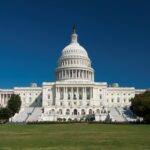New Maps Track Laws Related to Tobacco Pricing Strategies and Syringe Service Programs in US
(Philadelphia, Pa – Novermber 19, 2019) Two new maps published to LawAtlas.org today — syringe service programs (SSPs) and tobacco pricing strategies — offer a comprehensive look at US laws that address tobacco pricing strategies and access to clean syringes through syringe service programs.
“States have a vital role to play in promoting the health and well-being of their residents. These datasets, along with other resources produced under the Promoting Health and Cost Control (PHACCS) in States initiative, will provide decisionmakers, advocates, and other key stakeholders with the evidence and business case for the adoption of policies that have been shown to improve community health,” said Adam Lustig, MS, Manager and Co-Principal Investigator of the PHACCS initiative.
The maps are the first two legal data resources in a new series created and maintained by the Center for Public Health Law Research at Temple University’s Beasley School of Law (CPHLR) with the Trust for America’s Health (TFAH).
Researchers from the Center used the scientific policy surveillance process in collaboration with experts from TFAH to provide states with detailed information about the current state of US laws that could be used to improve community health through cost-saving policy changes.
“You must first measure a policy to understand its impact on health and cost. These maps give policymakers, advocates, practitioners and other stakeholders a comprehensive look into what these laws say and how the nuanced characteristics differ across the US,” said Lindsay Cloud, JD, Director of the Policy Surveillance Program at CPHLR. “The policy surveillance process we use is the gold standard for legal research because it creates objective, detailed legal data that can be used for evaluation and provides a clear visual to identifying gaps and areas for policy improvement.”
The project will include 13 datasets on a variety of public health topics through the end of 2020, ranging from universal pre-kindergarten and school nutrition standards, to housing and economic policies like the Earned Income Tax Credit and paid sick and family leave laws. The laws displayed were in effect as of August 1, 2019.
The two datasets released today, on syringe service programs and tobacco pricing strategies, represent two of the harm reduction-focused datasets in the series.
Syringe Service Programs
Syringe service program (SSP) policies authorize the legal sale and exchange of sterile syringes, and are one of the most effective and scientifically-based methods for reducing the spread of HIV and Hepatitis. This legal map identifies where SSPs have been explicitly authorized by the law, legal exemptions for individuals who access SSPs if they’re in possession of paraphernalia if stopped by law enforcement, and additional services an SSP must provide directly or through referrals.
Some key findings from this dataset include:
- 31 states have passed laws that explicitly authorize SSPs. This number has nearly doubled since 2014 (18 states as of August 1, 2014).
- In four of the 31 states – Delaware, Florida, Hawaii, and Maine – the law requires a one-for-one exchange of syringes.
- In three states – Colorado, Georgia and Ohio – SSPs are also required to provide HIV and Hepatitis screenings.
Tobacco Pricing Strategies
Tobacco use and exposure to second-hand smoke are leading causes of preventable death in the US. One strategy to decrease tobacco use and promote quitting is to increase the price of tobacco products. This legal map details US laws that apply taxes or set pricing limits for tobacco products, like traditional cigarettes, e-cigarettes, and others.
Some key findings from this dataset include:
- All 50 states and the District of Columbia tax cigarettes.
- All 50 states and the District of Columbia have taxes on non-cigarette tobacco products.
- 14 states and the District of Columbia also tax e-cigarettes, either by taxing the device, the liquid, or both.
- 31 states and the District of Columbia prohibit selling cigarettes, non-cigarette tobacco products, or both below cost.
- 32 states preempt local taxation of tobacco, either through explicit prohibitions on local tobacco taxation or through general limitations on the power of local governments to impose their own excise taxes.
Trust for America’s Health is a nonprofit, nonpartisan organization that promotes optimal health for every person and community and makes the prevention of illness and injury a national priority. Learn more at www.tfah.org
The Center for Public Health Law Research at the Temple University Beasley School of Law supports the widespread adoption of scientific tools and methods for mapping and evaluating the impact of law on health. Learn more at http://phlr.org
